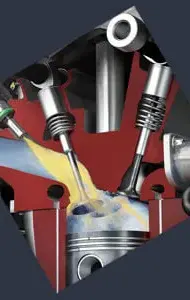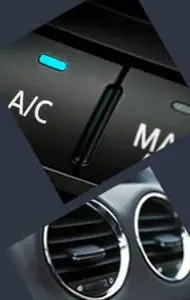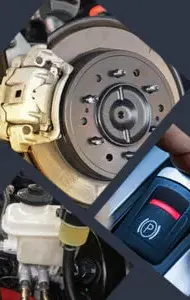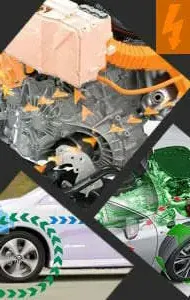Indirect Petrol Injection

Course Overview
Since its creation, internal combustion engines have evolved significantly due to the continuous demand for higher performance, lower consumption and, in recent times, limited production of toxic or polluting substances.
On these three aspects, the fuel supply system has a great influence, which has evolved from the carburettor to the mechanical injection systems first and to the electronic injection systems afterwards, achieving an ever greater precision in the fuel metering and new functionalities for a more efficient and coherent work.
With the implementation of additional functions and the development of integral engine control systems, the electro-hydraulic system regulates and corrects in an adaptive way not only the fuel supply, but also the air supply in order to optimise the engine response in all working conditions. At present, the injection systems manage the work of each of the engine cylinders separately to achieve the highest performance of the assembly and are to compensate for irregular wear and even for small failures.
Thus, the objective of this course covers the study and understanding of the following concepts:
- Combustion process.
- Operation of a 4-stroke engine.
- Beginnings of gasoline injection systems.
- Evolution of indirect fuel injection systems.
- Different sensors and actuators that perform the measurement and regulation functions.
- Multiple functions performed by the injection system.
- Calculation structure and work strategies of modern injection systems.
- Checks to be carried out on the components and the system itself for its repair.
Course Topics
Introduction (124 minutes)
Introduction to the Internal Combustion Engine
Working Principle
Carburation
Knowledge test
Combustion Reaction (68 minutes)
Fuel
Mixture Formation
Combustion and Influential Parameters
Knowledge test
Evolution of the Supply System (294 minutes)
Introduction to Injection
Mechanical Injection
Kugelfischer Injection System
K-Jetronic Injection System
KE-Jetronic Injection System
Electronic Injection
D-Jetronic Injection System
L-Jetronic Injection System
LH-Jetronic Injection System
Mono-Jetronic Injection System
Motronic Injection System
Knowledge test
Functions and Strategies (163 minutes)
Own Functions
Additional Functions
Engine Speed Control
Engine Torque Control
Temperature Control
Generated Vapours Control
Anti-pollution Systems Control
Self-Diagnosis
Knowledge test
Structure (158 minutes)
Hydraulic System
Electrical System
Knowledge test
Self-Assessment (34 minutes)
Self-Assessment
Average Duration
14 hours 1 minute
Access This Course
Get access to this course and 30+ more topics by subscribing.
Subscribe to Access All Online Courses
We provide access to all of our online courses for 12 months with a one-time purchase.
£199 ex.VAT per year


